Solar photovoltaics (PV) convert sunlight to electricity and is now the most utilised renewable energy technology globally. PV research focuses on ways to optimise power output from solar systems in real world situations. It covers fundamental understanding of solar PV, focussing more on applications in buildings, cities, villages, refrigeration and energy access through PV-driven mini-grid.
PV research focuses on buildings as power generators at city scale, the supply of power to invigorate rural villages in Africa as well as unique examples of building integrated PV (BiPV) deployed at the University of Southampton, with linkage between power generation from PV and behaviour in housing.
PV for refrigeration is an important application for PV not only in shaving off peak power in supermarkets and stores but also for cooling perishable foods during transportation. PV system was deployed on a Sainsbury’s working articulated trailer for the delivery of perishable food, a world first.
In addition, we work on the utilisation of PV on carports shading in the Kingdom of Saudi Arabia (KSA), in collaboration with the King Abdulaziz University. Car parking footprints in many institutions in KSA represent more than 50% of their area, creating possibilities for large power production at point of use. One of the research foci is understanding appropriate combination of cleaning options to mitigate dust accumulation which reduces energy yield of such PV arrays.
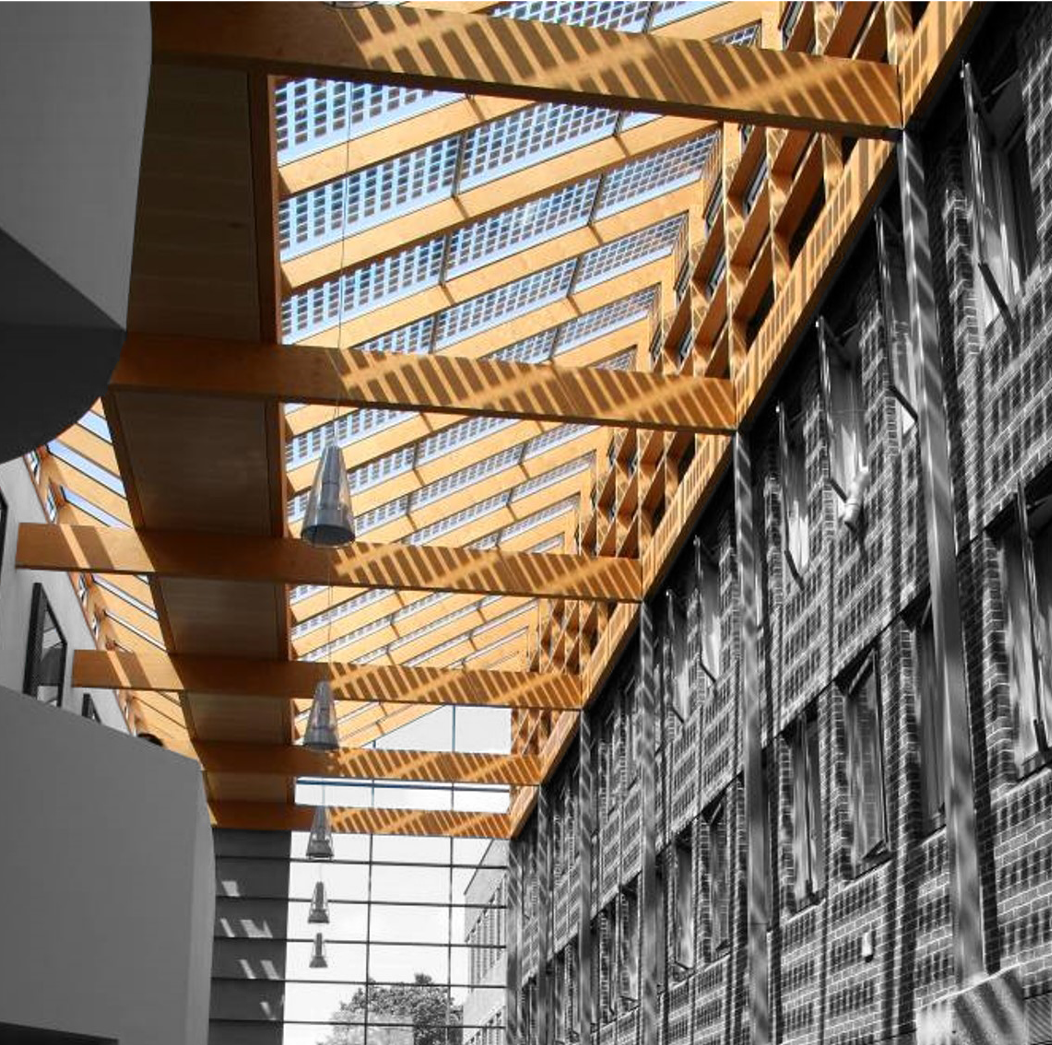
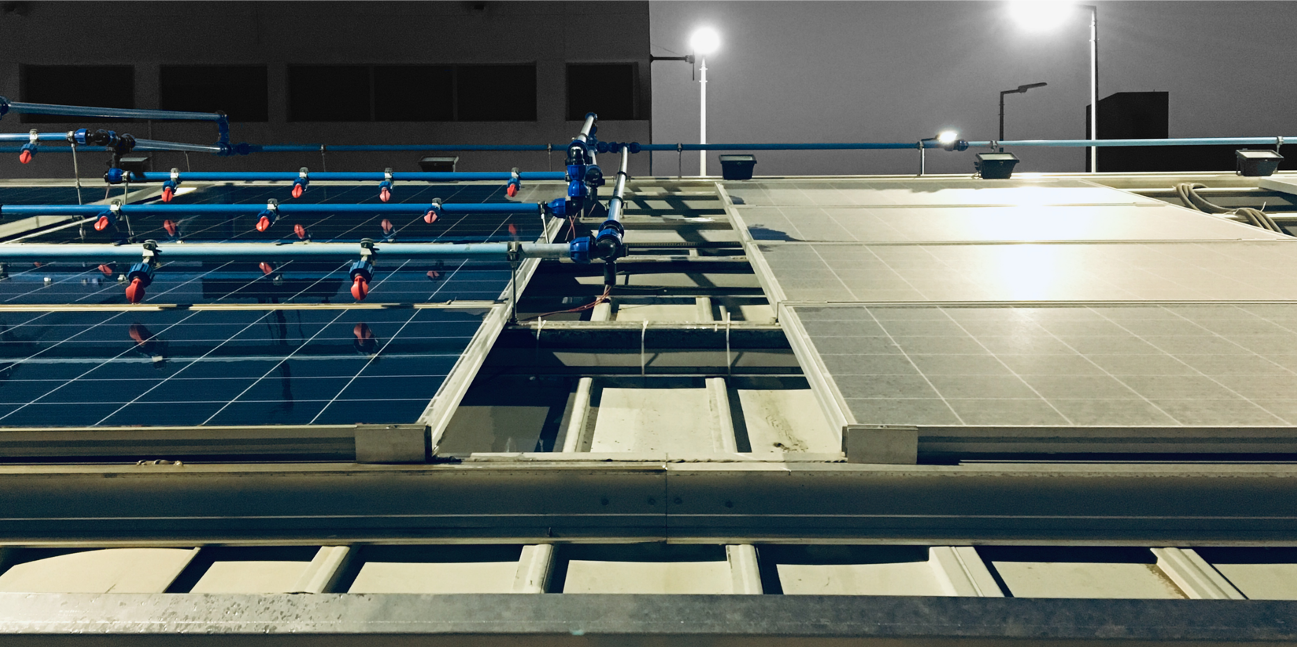
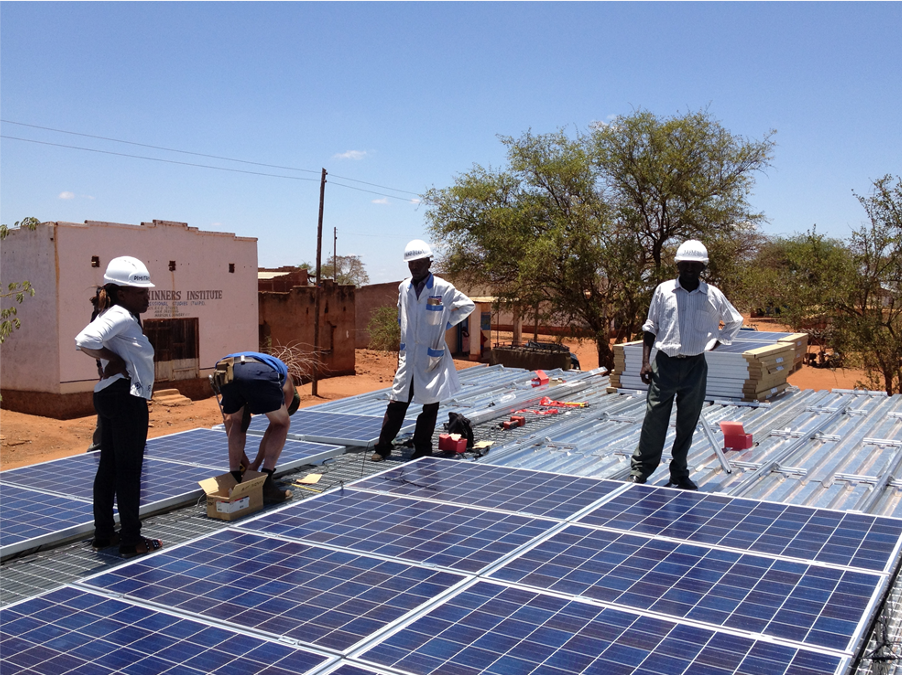
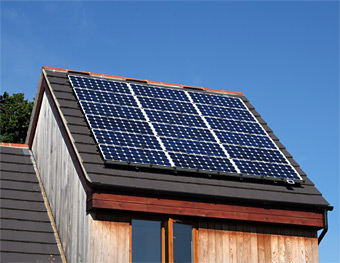
Updates:
ECCD team contribute to COP 28 2023 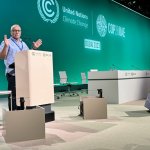
The ECCD team, lead by Prof. Bahaj contributed to the topic of energy access, cities and infrastructure at COP28, also contributing to the debate about ocean resources.
Lights stay on in Kitonyoni during nationwide power outage 2023 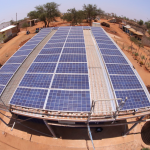
The Kitonyoni solar PV mini grid installed in 2012 by ECCD praised by the national media for providing unaffected electricity supply during Kenya’s longest blackout in recent years.
ECCD present at the International Conference on Sustainable Energy, SET 2023 in Nottingham, UK 2023 
ECCD presented 8 papers at the 20th International Conference on Sustainable Energy (SET 2023), Nottingham, UK, with Professor Bahaj also presenting a keynote address
Prof. AbuBakr Bahaj delivers keynote address at the 11th International Conference on Smart Grids (icSMARTGRID 2023) 2023 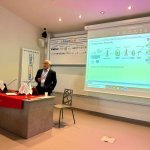
Professor Bahaj gives keynote address on “Opportunities for smarting up energy access through optimised mini grid networks” at the 11th International Conference on Smart Grids in Paris.
Solar Power Potential from Industrial Buildings and Impact on Electricity Supply in Bangladesh 2023 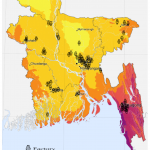
An ECCD paper which assessed the deployment of PV technology from industrial buildings in Bangladesh, and found that around 7.4 GWp of PV capacity could be achieved has, according to the journal Energies MDPI, generated a lot of interest since its publication, with results likely to influence renewable energy policy.
ECCD Research on floating solar PV referenced by BBC Future Planet 2022 
BBC Future Planet article ‘The floating solar panels that track the Sun’ references recent 2021 ECCD paper, ‘Floating solar PV to reduce water evaporation in water stressed regions and powering water pumping: Case study Jordan’.
Showcasing Engineering for Development 2022 
ECCD, in partnership with the Royal Academy of Engineering, hosted the inaugural Showcasing Engineering for Development one-day conference, taking place at the Royal Academy of Engineering, London, UK on March 18 from 09:30-16:00.
Training for local Engineers: Grid Connected Mini Grid, Kitonyoni 2021 
Energy for Development (e4D) team conducted a hands-on training for the young engineers of Kenya. Attendees learned how a small solar mini grid can support the near end of the utility grid while safely connected to the grid. The engineers also, learned the technological know how for grid interconnection, control strategies, grid export-import.
Renewable Energy in Saudi Arabia 2021 
Energy and Climate Change Division (ECCD) undertake research to support the Kingdom of Saudi Arabia’s (KSA’s) Vision 2030. The research is in collaboration with the Department of Electrical and Computer Engineering, King Abdulaziz University (KAU), supported by King Salam Bin Abdulaziz Chair in Energy Researcg and KSA Ministry of Education.
Why does energy demand grow at different rates in similar mini-grids? 2021 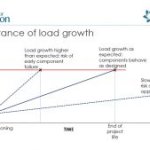
Dr Luke Blunden presented “Why does energy demand grow at different rates in similar mini-grids?” in the ‘Energy Poverty’ special session at the Evolving Cities Conference 2021, hosted in Southampton, UK from 13-15 September 2021. The research presentation focused on key aspects of electricity demand growth in off-grid mini grids. Lessons from the six operational Energy ...
e4D energy needs assessment: off-grid Sudan 2021 
Energy for Development (e4D) PhD researcher Aya Mohamed carried out extensive surveys in different off-grid locations in Sudan. Fulcrum digital survey tool was used to conduct all these surveys in July 2021. This work was supported by Higher Council for Environment and Natural Resources (HCENR), National Energy Research Center (NERC) and Ministry of Energy and ...
Solar Shaded Car Park Project 2018 
This project aims to implement a demonstration programme encompassing an operational research and experimental analysis of how solar photovoltaics can be utilised and maintained as shading components in carports.
Energy and the City RoadShow 2017 
The Sustainable Energy Research Group is hosting a roadshow on 9th November 2017. BACKGROUND ‘Liveable Cities’ is an umbrella name for a series of interlinked research projects addressing these questions, carried out by the Universities of Southampton, UCL, Lancaster and Birmingham. Liveable Cities is hosting a series of three roadshows, one in each of its case study cities: ...
e4D – 'Development and Mini-Grids in Rural Africa' – Conference Report 2015 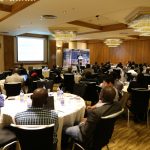
‘Development and Mini-Grid in Rural Africa’ was the Energy for Development’s (e4D) first dissemination conference successfully held 11 – 12 May 2015, in Nairobi, Kenya. The conference was well attended with over 130 registrants including academics, project developers, governmental officials, private sector contractors, students, project financiers as well as other stakeholders operating in the field of ...
Potential of developing rooftop PV systems on SCC non-domestic buildings 2015 
This app shows the results of modelling roof panel PV generation for non-domestic Southampton City Council properties in Southampton, UK. Click on the ‘Large Map’ button to see the full interaction version hosted by ESRI/ArcGIS. The three buttons on the top right corner of the map can be used to “Search”, “Filter”, and “Change basemap”. Results are obtained ...
RENKEI Spring School – University of Southampton Southampton, UK, 22-29 March 2015 2014 
Theme: ‘District Energy Supply within Cities’ Date: 22-29 March 2015 Venue: University of Southampton Background RENKEI is the Japanese word for “collaboration” and in this context also stands for Research and Education Network for Knowledge Economy Initiatives. RENKEI is an initiative of six Japanese Universities, six UK Universities and the British Council Japan. The role of RENKEI is to offer a common ...
Two New Villages set for Electrification 2013 
The villages of Bambouti in Cameroon and Oloika in Kenya’s rift valley are set for electrification through PV array’s by the E4D team and partners. Baseline data has been collected and the villages will undergo installation in the coming months. Oloika, Kenya On a recent trip to Kenya, the E4D team, along with members of Kenya’s Rural ...
Flexible Hydrogenated Amorphous Silicon Solar Cells 2008 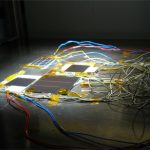
Acheiving low cost, non-toxic, high efficiency, high throughput solar cells is the ultimate challenge for the solar energy industry. Traditional glass laminate crystalline silicon solar cells offer relatively high efficiency (up to 20%) but are an expensive product. At SERG research and development of low cost sputtered amorphous silicon solar cells on flexible substrates is ...
Thin Film Development – Flexible Hydrogenated Amorphous Silicon Solar Cells 2007 
Achieving low cost, non-toxic, high efficiency, high throughput solar cells is the ultimate challenge for the solar energy industry. Traditional glass laminate crystalline silicon solar cells offer relatively high efficiency (up to 20%) but are an expensive product. Research and development of low cost sputtered amorphous silicon solar cells on flexible substrates is being conducted ...
Photovoltaics in Residential Applications 2007 
Residential grid connected PV systems are relatively simple to design with easy to predict annual yields. However, the headline economics of residential PV in the UK are at present unattractive. A typical small residential PV system (1 to 3 kWp) as shown in the top figure would cost in the year 2000 around £4,500 per ...
Photovoltaic Module Mismatch Studies 2006 
An investigation of mismatch effects on a 24 string array at the University of Southampton has been undertaken. Building 2 has a vertical 7.2 kWp SW facing array, consisting of 96 BP275 mono-crystalline PV modules, configured as 24 strings, each consisting of 4 modules in series.
Solar PV Systems at Highfield Campus, Southampton 2005 
The University of Southampton has three permanently grid connected PV systems on its Highfield Campus designed and serviced by the Sustainable Energy Research Group. The installed capacity of these three facilities is about 20 kWp: (a) George Thomas Building – 12.2 kWp atrium (b) Building 2 – 7.2 kWp vertical façade (c) Eustice Building – 0.4 kWp roof ...
Assessment of Urban Microgeneration Solutions 2004 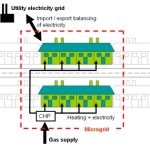
The group’s research is looking at existing housing developments from the 1970s, 1980s, 1990s and 2000s to determine the scope and potential impact of microgeneration technologies and energy efficiency measures on the residential scale.
Reliable Photovoltaic Connectors 2003 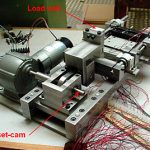
Background Photovoltaic modules have no moving parts and last upwards of 25 years with no maintenance aside from the occasional cleaning. Realising such a long lifetime for entire PV systems relies on the continued integrity of all system components. The installation of modules in building facades and other structures has necessitated the use of push fit ...
Keeping Food Chilled – by Solar Power 2002 
The Sustainable Energy Research Group has led a programme to develop what is believed to be the world’s first solar powered refrigeration unit installed on a working articulated vehicle for Sainsbury’s Supermarkets Ltd. Power for the refrigeration unit is generated by photovoltaic panels mounted on the trailer’s roof. An on-board battery stores the excess power for use by the ...
Holographical Optical Elements (HOE) for high efficient illumination, Solar Control and Photovoltaic Power in Buildings 2001 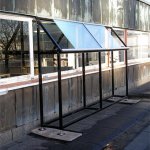
The Sustainable Energy Research Group has been involved in an EU FP5 research project on High Efficiency HOEs investigating HOEs for building applications as well as testing their compliance as a building material. Within this project the work of the researchers in Southampton centred on HOEs as a solar shading solution. Bespoke thermal simulation models ...
PV Roof Tile Development – POWERTILE 2000 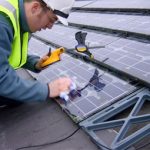
ECCD has developed a PV roof tile through Powertile Ltd which is now sold under license by Marley Eternit. A test roof at the University, which is shown in Figure 3, is used for prototype assessment and analysis of the thermal behaviour of different roof constructions.
Development of Reliable Electrical Connectors for PV Roofs 1999 
The installation of modules in building facades and other structures has necessitated the use of push fit connectors to enable quick and easy inter-module dc electrical connection. An accelerated lifetime fretting rig has been developed to test presently available and PV prototype connectors as the dc interconnection between PV elements represents a potential weak link ...
Solar PV in Food Transport Refrigeration 1997 
The Energy and Climate Change Division has led a programme to develop what is believed to be the world’s first solar powered refrigeration unit installed on a working articulated vehicle for Sainsbury’s Supermarkets Ltd.
SCOLAR – UK national programme of PV for Schools 1996 
The Scolar Programme for Photovoltaics was initiated as a response to the Government’s Foresight Challenge to develop photovoltaic (PV) technology and to raise awareness of PV in schools and other educational establishments.
